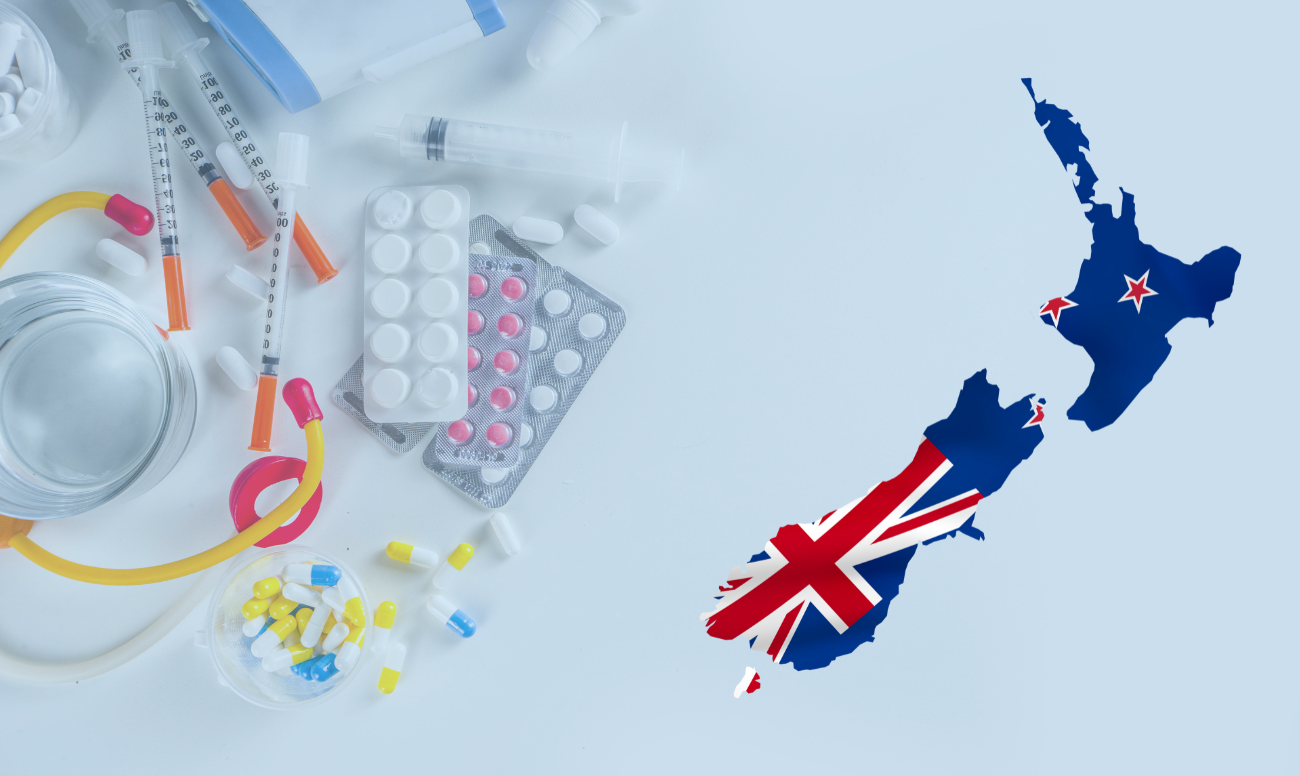
Orphan Drugs: Unlocking Hope for The Treatment of Rare Diseases
“Orphan Drugs” is a unique class of innovative medications in the vast landscape of pharmaceutical products. These drugs are not meant for treating common ailments that affect a large population. Instead, they are specifically designed to address the unmet needs of patients suffering from rare and often life-threatening diseases. Orphan drugs are beacons of hope for individuals and families who have long struggled without viable treatment options. In this blog post, we will explore the significance, challenges, and impact of orphan drugs and how different stakeholders can collaborate to improve treatment outcomes for rare diseases.
What are Orphan Drugs?
The United States Orphan Drug Act of 1983 defines a “rare disease” as a condition affecting fewer than 200,000 individuals in the United States. Thus, the FDA designates a drug for the treatment of these rare diseases as an “Orphan Drug”. In other geographies, regulatory bodies use similar criteria to define orphan drugs, aiming to support drug development for underrepresented patient populations. At present, there are more than 6000 rare diseases recognized globally, with most of them being genetic and often debilitating or life-threatening. The development of orphan drugs to treat the same is essential to meet the unmet needs of the patients.
The Benefits Of Orphan Drugs
According to a study published in 2021, approximately 260-440 million patients worldwide suffer from rare diseases. While from a statistical perspective, the prevalence of a rare disease may seem less significant, the development of orphan drugs is crucial to meet the clinical needs of the millions of patients around the globe who struggle to survive amidst debilitating symptoms.
Orphan drugs allow healthcare professionals to provide effective treatment to individuals suffering from rare diseases, whose quality of life or lifespan may otherwise be significantly stunted. Here are 3 benefits of orphan drugs that make them an indispensable part of a robust healthcare system –
1. Addressing Unmet Needs: Rare diseases are often caused by genetic mutations and can be debilitating or life-threatening, with a significant impact on patient’s quality of life. Orphan drugs offer hope for patients who might otherwise have no treatment options available to them.
2. Improved Diagnosis and Understanding: Research and development of orphan drugs often lead to a deeper understanding of the disease itself. This knowledge can improve diagnosis, provide insights into disease mechanisms, and spur further research in related fields.
3. Patient-Centric Approach: The development of orphan drugs requires close collaboration with patients and patient advocacy groups. This patient-centric approach ensures that the medication aligns with the unique needs and challenges faced by individuals living with rare diseases.
Challenges with Orphan Drug Development and Commercialization
Developing and commercializing orphan drugs requires overcoming various hurdles, which often result from the limited patient pool and unique characteristics of rare diseases. Hence, regulatory bodies, governments, research organizations, pharmaceutical companies, and healthcare entities must collaborate to overcome the following challenges –
1. Limited Market Size: Due to the small number of potential patients, the commercial viability of orphan drugs can be uncertain. Therefore, pharmaceutical companies may face financial challenges in recouping the significant investment required for research and development.
2. Regulatory Hurdles: Though governments worldwide have established incentives and supportive legislation to encourage orphan drug development, navigating the regulatory landscape for rare diseases may still be complex and time-consuming in some geographies.
3. High Development Costs: Orphan drugs necessitate specialized research, which can drive up development costs. Limited patient populations may also require lengthier clinical trials to demonstrate safety and efficacy, further adding to expenses.
Initiatives To Overcome The Challenges With Orphan Drug Development And Distribution
1. Orphan Drug Designation
Regulatory bodies, such as the U.S. Food and Drug Administration (FDA) and the European Medicines Agency (EMA), offer orphan drug designation to qualifying medications. This status provides incentives to pharmaceutical companies, such as extended market exclusivity, tax credits, and reduced regulatory fees. These incentives encourage companies to invest in research and development efforts for orphan drugs, despite the limited patient populations.
2. Faster Approval Processes And International Harmonization
Recognizing the urgent needs of patients with rare diseases, regulatory bodies often expedite the review and approval process for orphan drugs. Furthermore, global regulatory harmonization efforts ensure consistency in orphan drug regulations across countries. This acceleration and alignment optimizes and streamlines the development and approval processes, facilitating international access to orphan drugs and benefiting patients worldwide.
3. Research Grants and Funding
Government agencies and non-profit organizations offer research grants and funding opportunities specifically dedicated to orphan drug development. These financial resources support scientific research, preclinical studies, and clinical trials, providing a lifeline to companies pursuing orphan drug research.
4. Collaboration and Networking
Regulatory bodies and government organizations facilitate collaboration between pharmaceutical companies, researchers, patient advocacy groups, and healthcare professionals. Public-private partnerships and networking allow the exchange of knowledge, resources, and expertise, accelerating progress and enhancing the development of orphan drugs for rare diseases. Furthermore, collaborations between pharmaceutical suppliers, patient advocates and healthcare providers facilitate faster access to orphan drugs to patients in need.
Examples of Orphan Drugs – Success Stories
Orphan drugs have not only revolutionized the treatment of rare diseases but also offered hope to patients and their families who once faced devastating diagnoses with no viable treatment options. Here are some of the top orphan drugs that serve as remarkable success stories in the field of rare disorder treatment. They stand as proof that a push for the development and distribution of orphan drugs can unlock new possibilities for patients with fatal, rare disorders.
1. Spinraza (Nusinersen): Spinal Muscular Atrophy (SMA), a rare genetic neuromuscular disorder, was once a devastating diagnosis with limited treatment options. However, Spinraza, developed by Biogen, became the first FDA-approved therapy for SMA. This groundbreaking orphan drug targets the underlying cause of SMA, effectively halting its progression and significantly improving the quality of life for affected individuals.
2. Soliris (Eculizumab): Paroxysmal Nocturnal Hemoglobinuria (PNH) is an ultra-rare, life-threatening blood disorder characterized by the destruction of red blood cells. Soliris, developed by Alexion Pharmaceuticals, was a game-changer, providing patients with PNH a much-needed lifeline. By blocking the destruction of red blood cells, Soliris has transformed PNH treatment, preventing life-threatening complications and offering hope for a better future. Besides PNH, Soliris has also been approved by the FDA as an orphan drug for the treatment of two other rare and debilitating disorders – Myasthenia Gravis (MG) and atypical hemolytic uremic syndrome (aHUS).
3. Kalydeco (Ivacaftor): Cystic Fibrosis (CF), a progressive and life-shortening genetic disorder, posed a significant challenge for both patients and healthcare providers, with patients rarely surviving beyond their teenage years in the 1980s. Kalydeco, developed by Vertex Pharmaceuticals, targets specific gene mutations associated with CF, enhancing the function of defective proteins in affected individuals. This innovative orphan drug transformed CF treatment, enabling patients to lead more fulfilling lives and achieve better health outcomes.
4. Luxturna (Voretigene Neparvovec): Leber Congenital Amaurosis (LCA) is a rare and severe form of inherited retinal dystrophy, often resulting in childhood blindness. Luxturna, developed by Spark Therapeutics, became the first FDA-approved gene therapy for a genetic disease. By delivering a functional copy of the affected gene directly into the retina, Luxturna has offered a glimpse of light to children suffering from LCA, allowing them to perceive the world around them.
5. Zolgensma (Onasemnogene Abeparvovec): Zolgensma, developed by Novartis, is a gene therapy that replaces the missing or defective SMN1 gene responsible for Spinal Muscular Atrophy (SMA). This one-time treatment has shown remarkable success in halting disease progression and improving motor function in young children affected by SMA.
Bottom Line
Orphan drugs are a crucial part of the pharmaceutical landscape, offering treatment options to those suffering from rare disorders that cannot be treated by mainstream medicines. Examples of successful orphan drugs are proof that by focusing on the needs of the patients and leveraging advances in science and technology, we can continue to drive innovation in the field of rare disease treatment. Furthermore, governments, researchers, healthcare providers, patient advocates, and pharmaceutical suppliers must collaborate to ensure that these life-saving medications reach individuals across all geographies who suffer from rare diseases. Through this collective effort, we can make global healthcare more inclusive for all patients, regardless of the rarity of their conditions.
At Eudaico, we partner with accredited pharmaceutical manufacturers to supply high-quality orphan drugs worldwide to patients seeking treatment for rare diseases. Kindly contact us for more information on the global supply of orphan drugs.




